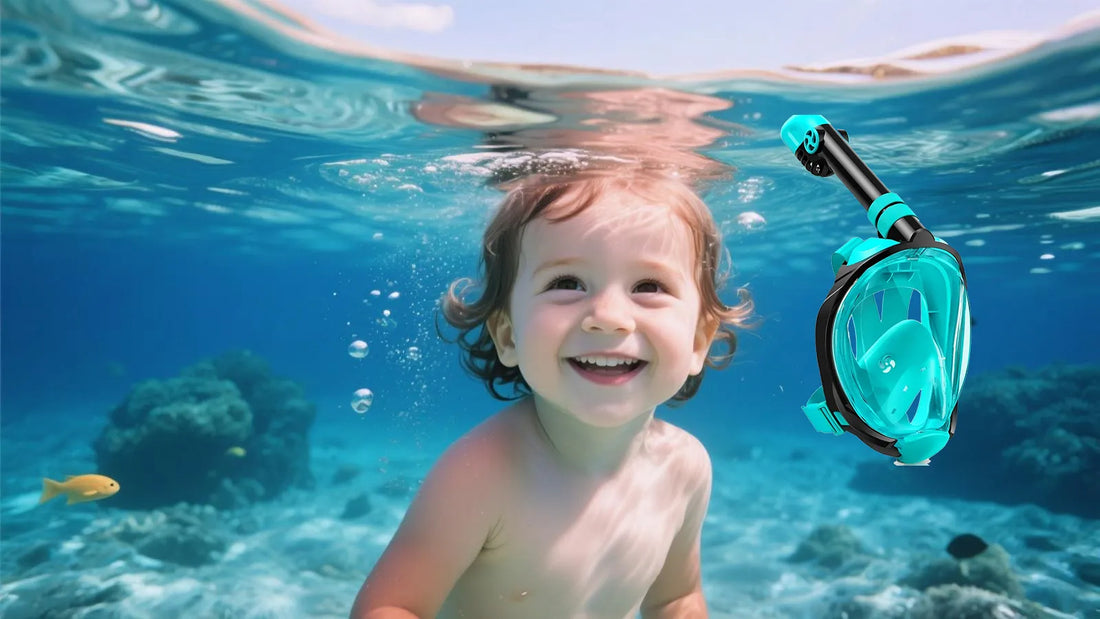Have you ever dreamed of exploring the underwater world without the constraints of heavy equipment? Free diving offers a unique and exhilarating way to connect with the ocean, allowing you to glide effortlessly through the depths. Whether you're drawn to the tranquility of the underwater environment or the challenge of pushing your limits, learning how to start free diving is the first step toward an unforgettable adventure.
Understanding the Basics of Free Diving
Free diving, also known as breath-hold diving, is the practice of diving underwater without the use of scuba gear. Instead, divers rely on their ability to hold their breath while exploring the ocean. This ancient practice has evolved into a modern sport and recreational activity, attracting enthusiasts from around the world.
Before you take the plunge, it's essential to understand the fundamental principles of free diving. This includes learning about breath-holding techniques, equalization methods, and the physiological effects of diving on the body. Familiarizing yourself with these basics will not only enhance your performance but also ensure your safety in the water.
Getting Started with Free Diving
Embarking on your free diving journey begins with proper preparation. Here are the key steps to get started:
1. Find a Certified Instructor
Learning from a certified free diving instructor is crucial for building a strong foundation. A qualified instructor will teach you the necessary skills, safety protocols, and techniques to dive confidently. Look for instructors who are affiliated with recognized free diving organizations to ensure you receive high-quality training.
2. Invest in the Right Gear
While free diving requires minimal equipment, having the right gear can make a significant difference in your experience. Essential items include a well-fitting mask, snorkel, fins, and a wetsuit suitable for the water temperature. Investing in high-quality gear will enhance your comfort and performance in the water.
3. Practice Breath-Holding Techniques
Mastering breath-holding is at the core of free diving. Start by practicing static apnea, which involves holding your breath while remaining stationary. Gradually increase your breath-hold time and incorporate dynamic apnea exercises, such as swimming underwater, to build your endurance and confidence.
4. Learn Equalization Methods
Equalization is the process of balancing the pressure in your ears and sinuses as you descend. The most common technique is the Valsalva maneuver, which involves gently blowing against a closed nose. Practice equalization regularly to prevent discomfort and potential injuries during your dives.
5. Focus on Safety
Safety should always be your top priority when free diving. Always dive with a buddy, establish clear communication signals, and adhere to your limits. Familiarize yourself with the signs of hypoxia and shallow water blackout, and know how to respond in case of an emergency.
Building Your Free Diving Skills
As you gain experience, you can start refining your free diving skills to explore deeper and longer. Here are some advanced techniques to consider:
1. Improve Your Finning Technique
Efficient finning is essential for conserving energy and maximizing your dive time. Practice different finning styles, such as the flutter kick and the dolphin kick, to find what works best for you. Focus on smooth, controlled movements to minimize drag and improve your propulsion.
2. Enhance Your Relaxation and Focus
Free diving requires a calm and focused mindset. Incorporate relaxation techniques, such as meditation and visualization, into your training routine. Staying relaxed not only improves your breath-hold but also enhances your overall diving experience.
3. Gradually Increase Depth and Duration
As you become more comfortable, gradually increase the depth and duration of your dives. Set realistic goals and track your progress to stay motivated. Remember to listen to your body and avoid pushing yourself beyond your limits.
4. Explore Different Environments
Free diving offers the opportunity to explore a variety of underwater environments, from coral reefs to deep blue waters. Each environment presents unique challenges and rewards, so take the time to experience different locations and conditions.
Joining the Free Diving Community
Free diving is not just a sport; it's a community of like-minded individuals who share a passion for the ocean. Joining a free diving club or attending events and competitions can provide valuable support, inspiration, and camaraderie. Engaging with the community will also keep you informed about the latest techniques, safety practices, and environmental initiatives.
As you continue your free diving journey, remember that patience and persistence are key. Every dive is an opportunity to learn and grow, and the ocean offers endless possibilities for exploration and discovery. So take the plunge, embrace the challenge, and let the underwater world captivate your senses.
Ready to dive into the world of free diving? With the right preparation, training, and mindset, you can unlock the wonders of the ocean and experience the freedom of gliding through the depths. Start your journey today and discover the magic that awaits beneath the surface.

